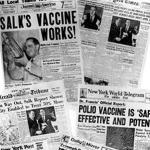No one witnessing a burglary in progress would call 911 and ask for a doctor. Likewise, it makes no sense for a doctor to consult a cop about prescribing medications.
opioid crisis
I have been writing about the now disastrous consequences of withholding opioid pain medications from pain patients with legitimate needs since 2013 – well before most other organizations.
The Federalist Society recently organized a panel discussion on how to end the opioid crisis. One of the four participants was Dr. Jeffrey Singer of the Cato Institute, who is also a member of the ACSH's Board of Scientific Advisors:
Reprinted with permission. Dr. Singer's original article can be found here.
###
In July of 2018, the Florida legislature, acting as physicians, not as the near majority of lawyers that they are, restricted opioid prescriptions for acute pain to three days, with a seven-day extension for documented exceptions.
It's a new year, but we're the same old ACSH. While everyone else was out partying and celebrating, we were busy debunking junk and spreading the good word about science. This year is already off to a great start.
The Rand Corporation just released their study on the opioid crisis. Everything that follows our their words, gently edited and slightly rearranged. No facts or conclusions were harmed in this production.
The opioid epidemic has resulted in some soul-searching in the medical community.
#Special to ACSH. Reprinted with permission of Dr. Jeffrey Singer and the Cato Institute. Dr.












